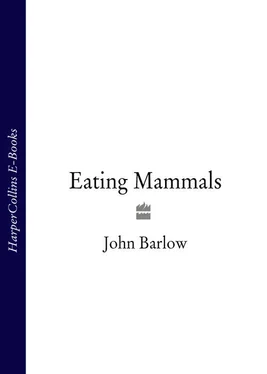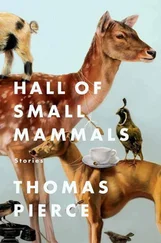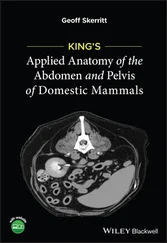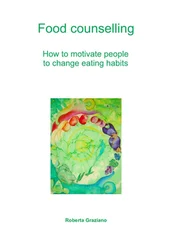Captain Gusto (for, after my impromptu baptism by Mulligan, I felt no urge to change the name) specialised in a modest eat-all programme. He would invite those assembled to offer up items for consumption, at a price. With each object offered he would state the cost of its ingestion, inflating the amount beyond the perceived pocket of an individual when disinclined to consume, and keeping it reasonable when the thing was more manageable. In return I paid a site rent to the fair, circus or freak show in question. I was, if you like, an itinerant beggar to Mulligan’s aristocrat. But we both ate.
For the main part, though, we travelled together with The Machine. There was an endless supply of stories, mile after mile in that old, majestic car. Names and feats which amused, surprised or saddened, like poor Henry ‘Tubby’ Turns, who died in a sideshow tent in Pittsburgh whilst trying to keep two rats down, out of pure professional pride, and even against the wishes of those half a dozen appalled Pittsburghers who’d paid to witness it. Our conversation would also touch on more recent times, to the decline of our trade and the rise of public opinion against us, to arrests and the lack of offers of work from travelling shows, the short-lived interest shown by television and the tragic cases of those who made it big on TV only to find that they were subsequently pursued all the more assiduously by local public health officials eager to stamp out the whole business. He warned me that things would only get worse.
He was right. Since then I have probably spent more time in local jails and courthouses than in hospitals. And hospital is by far the better place to be from time to time. In hospital, you say? Yes! As the mountaineer can expect the odd broken leg, and the tennis player his eponymous elbow, so the eater is no stranger to the stomach pump and the enema bag. Nor does he fear the liquid shakes of gastroenteritis, other than through the loss of income which it implies. No, from experience I can affirm that I would prefer to be bound over by a surfeit of sawdust than by the local magistrate any day of the week.
But, alas, it was the latter which haunted my working days and meant that every trip, every performance, each appearance of Captain Gusto and his Marvellous Mouth required the planning and precision of a bank raid. And this, I need hardly tell you, made the job itself all but impossible. In the end one ingested not at one’s leisure, as the great men did, slowly, drawing the audience in with a series of grimaces and exaggerated, faked gripes, staggering and holding your stomach as if it were about to burst and spill its contents over the incredulous onlookers before you. It was more a matter of gulping the stuff down with one eye scouring the audience, seeking out the blank face of a health department official, and with the other watching out for the approach of the fairground manager, come to tell you that he’s been forced to close you down (although never to return your site fee). Captain Gusto and his Marvellous Mouth have, if I were to tell the truth, scarpered from more places than he (or I) would care to remember, sometimes with the marvellous mouth still chewing.
But back then, in the Rolls with the great man himself, who could have resisted? Could you, sitting right next to Mulligan himself, the tingling anticipation for that evening’s performance already in your stomach, have thrown it all in for a steady job?
Working the fairs did have its benefits. For the main part, what was offered up consisted of the same things which the crowds themselves were eating. Someone would toss me a half-eaten apple, and I, pretending to examine it minutely, would quote a farthing, or the equivalent. The coin would be passed to me, and I would begin munching. If there came giggles from the audience, then perhaps I might discover a worm in it, or that it was rotten pulp on the inside. That didn’t matter, for the humble apple would attract attention, and more pricey morsels would then come my way. Someone would pick up a sausage from the ground, covered in mud, and I would swallow it down for a penny, my mind fixed with hard determination on the thought of Turkish delight or smoked salmon. Once, in eastern France, a whole bunch of hysterical schoolboys passed me their sandwiches and, for a trifling price, I ate the lot, to the great disapprobation of the adults present, who scolded both me and the boys for such a foolish waste of good food. Another time, at a small and somewhat uncivilised country fair in the old East Germany (for the Iron Curtain was invariably lifted in those out-of-the-way border towns, where, to be honest, I have always been most in demand), a group of drunken young men threw me their half-eaten salamis and other, less appetising, varieties of cold meats. I ground the lot up and got it down in no time. That didn’t satisfy them, and they went off in search of more entertaining provender, returning with a couple of ragged, inedible (or so they thought) cabbages, and an armful of dirty, mould-ridden potatoes. They had no more money to offer, but on the understanding that I envisaged absolutely no problem in chomping my way through the vegetables, the lads persuaded a great many of the prurient, grinning bystanders to cough up their loose change until, weighing the money in my hand, I gave a solemn nod and began to grind.
On that occasion, as on many others, I had to ask myself, ‘Well, did you think I was going to sleep with that lot inside me?’ The problem here, though, lay in making a sufficiently swift exit after consuming that item which one most desired to see coming out the same way as it went in. It was a matter of orchestration, of balancing the need to tread the ground of the astonishing, to excite and amaze, to encourage the proffering of extravagant objects; of balancing this with the requirement that, in general, a thing really worth the distasteful task of consuming was, by definition, the last thing which one would want to eat that evening. Afterwards, it was simply a matter of vacating the place as quickly as possible.
Meanwhile, the number of Mulligan’s own appearances dwindled. One began to perceive in his comportment the slightest flutter of arrested fatigue. His appetite remained strong, but he strained under the effort of summoning up that visible relish which was always the most striking feature of his act. Without a doubt he wanted a rest, although the word ‘retire’ I mentioned to him only once.
‘Retire!’ he bellowed straight back at me, gasping under the sheer preposterousness of the suggestion. ‘Retire? And what, might I ask, would The Great Michael Mulligan do in retirement? And where? One of those little retirement homes on the coast? Eh? Those prisons for the wrinkled and the incontinent? Eh? Eh? Perhaps with the occasional biscuit-nibbling demonstration, or championship Grape Nut chewing in the afternoons? Is that what you mean?’
I did not mention it again. But as his performances became more laboured there came a point when not just I but also some of his more enduring clients began to see in his feats of consumption not the old majestic confounding of one’s senses of the possible, but an ageing man in a faded velvet suit eating furniture.
Then one night the inevitable happened. For the first time in his long career, the cruel, ignominious shadow of normality fell upon Michael Mulligan. It occurred during a performance for a bawdy and foul-mannered bachelor party, an evening which the great man had agreed to only as a personal favour to the groom’s father, and which was to include the famous chair-eating routine. Part-way through the act, with two legs and a good section of the chair-back already ingested, he turned to me. His face had gone pale, and threads of sweat wound their way down his forehead. Above the raucous noise of a roomful of young men too drunk to appreciate either his repartee or the feat of ingestion being undertaken for their entertainment, he said to me: ‘I’m full.’
Читать дальше












